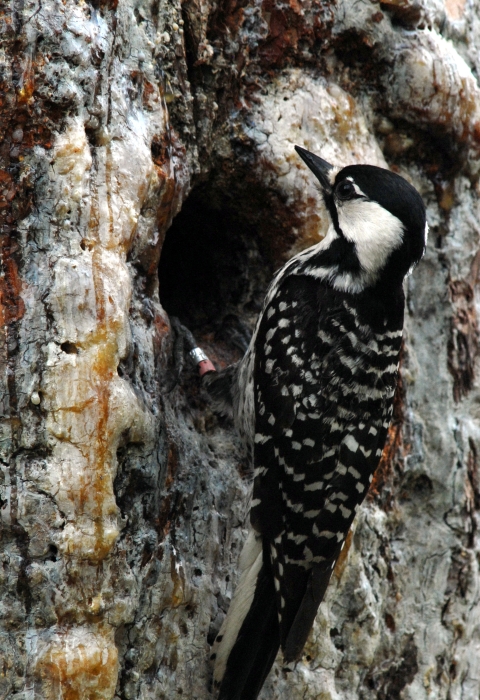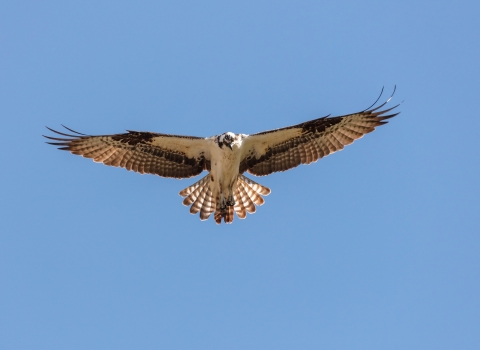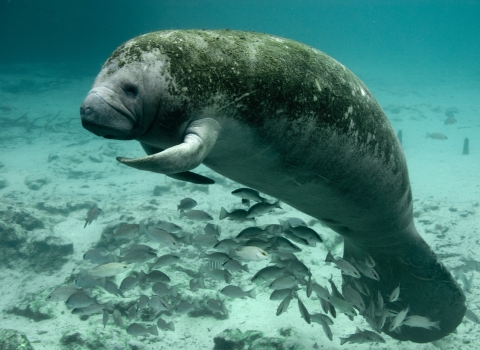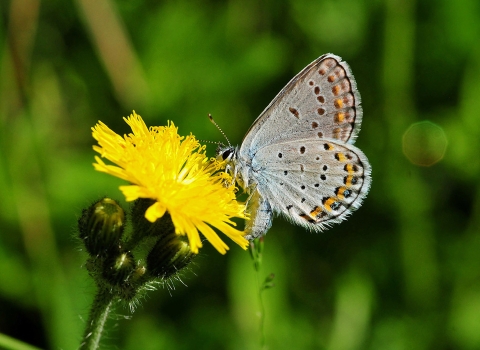In October 2020, the U.S. Fish and Wildlife Service proposed to reclassify the red-cockaded woodpecker (RCW) from endangered to threatened, with a 4(d) rule, under the Endangered Species Act (ESA). Based on the information received during the initial public comment period, the Service is proposing a revised 4(d) rule for the RCW to address the public’s questions and concerns. The Service is reopening the comment period to allow all interested parties the opportunity to comment on the revisions to the 4(d) rule.
“Public engagement in our processes is what helps ensure that any final action is based on the best scientific and commercial data available and is as accurate and as effective as possible,” said Leopoldo Miranda-Castro, the Service’s Regional Director. “Our partners have helped us get to where we are today with the tremendous growth in RCW population numbers, so we fully invite their participation every step of the way in its recovery.”
Section 4(d) of the ESA allows for the issuance of regulations for threatened species that provides for their continuing conservation with a change in listing status. For the RCW, this revised proposed 4(d) rule would adopt the same prohibitions that apply to an endangered species under section 9 of the ESA. It would continue to prohibit take, among other standard activities (e.g., import/export). The prohibitions would apply throughout the species range, on both public and private lands, only if the species is reclassified as a threatened species.
In addition to these prohibitions, the Service is proposing several exceptions in the 4(d) rule to allow for routine law enforcement activities, defense of life, the assistance of sick or injured birds, and also to encourage the active habitat management the species uniquely requires. It provides new exceptions for incidental take that occurs as a result of conducting prescribed burns, applying herbicides, and installing artificial nesting cavities. It would continue to except take associated with activities that are authorized by permits under the ESA, including those associated with Safe Harbor Agreements or Habitat Conservation Plans.
The revised 4(d) rule would also allow employees of state conservation agencies operating under cooperative agreements with the Service to take RCWs in order to carry out conservation programs for the species. Essentially, the revised 4(d) rule would continue to help, not hinder, the implementation of actions necessary to promote conservation of the RCW by providing more flexibility for incidental take that may result from activities that maintain and restore habitat for the species.
Please visit our Frequently Asked Questions to learn more about the revised 4(d) rule and what it entails.
Those who have already commented on the proposal to reclassify the RCW do not need to resubmit comments on the reclassification. However, since changes have been made to the proposed 4(d) rule, interested parties are encouraged to review the rule and submit comments accordingly. The public is invited to submit comments during this reopening until March 7, 2022.
For instructions on how to comment, go to the Federal eRulemaking Portal: www.regulations.gov. In the Search box, enter FWS-R4-ES-2019-0018, which is the docket number for this rulemaking. The Service will accept comments received or postmarked on or before March 7, 2022. Requests for public hearings must be received in writing by February 18, 2022.
FOR FURTHER INFORMATION CONTACT: Aaron Valenta, Chief, Division of Restoration and Recovery, U.S. Fish and Wildlife Service, Southeast Regional Office, 1875 Century Boulevard, Atlanta, GA 30345; telephone 404–679– 4144. Persons who use a telecommunications device for the deaf (TDD) may call the Federal Relay Service at 800–877–8339.



